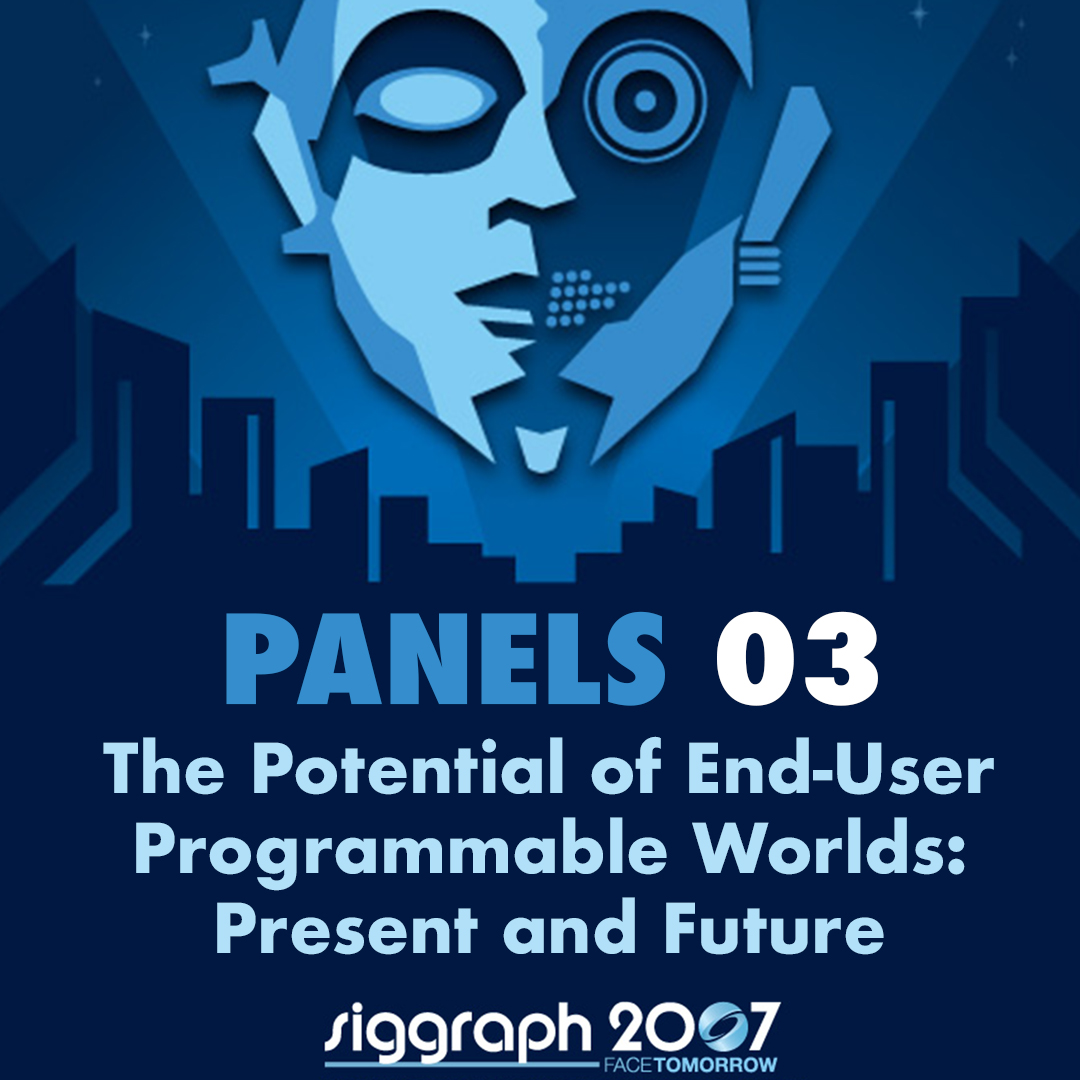“The Potential of End-User Programmable Worlds: Present and Future” Moderated by Jessica K. Hodgins
Conference:
Type(s):
Title:
- The Potential of End-User Programmable Worlds: Present and Future
Presenter(s)/Author(s):
Moderator(s):
Entry Number:
- 03
Abstract:
In Vernor Vinge’s 1981 science fiction classic True Names, a global multi-user virtual world underlies the functioning of government and business. Some control this world in a literal-minded filing cabinet sort of fashion, and others with more colorful metaphors. Either style of interaction is a form of end-user programming. The power of cyberspace lies in the creativity and programming talent of its inhabitants.
Has that day arrived? Some view end-user programmable virtual worlds like Linden Labs’ Second Life as a meaningful step in that direction. In fact, end-user programmable worlds had their start in text-based virtual worlds, MUDs (1979) and MOOs (1990). Are these systems just a different style of multi-player game, or is something happening with broader implications? Will commerce embrace these worlds? What about education? Is the future “cyberspace” a world built in computer graphics, or is it more likely a proliferation of networked devices in real space? In this panel discussion, we consider the present and the future of end-user programmable graphical worlds.





